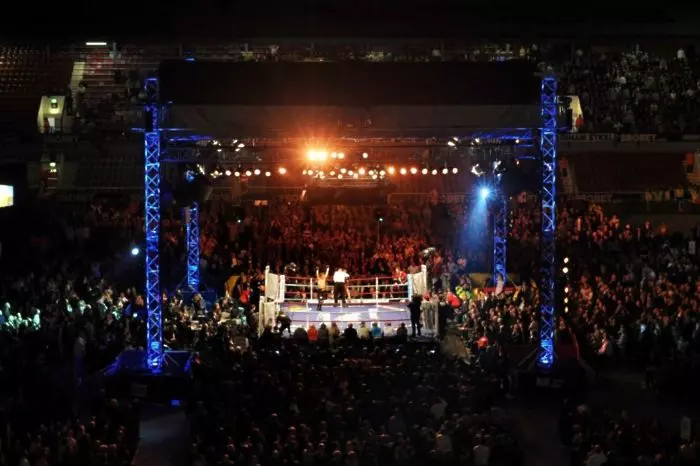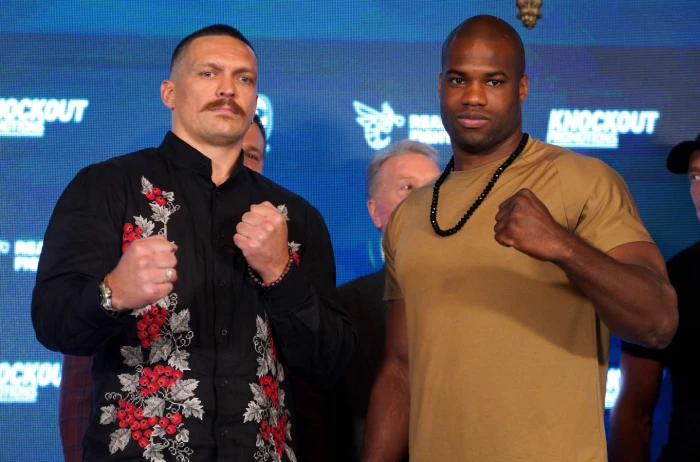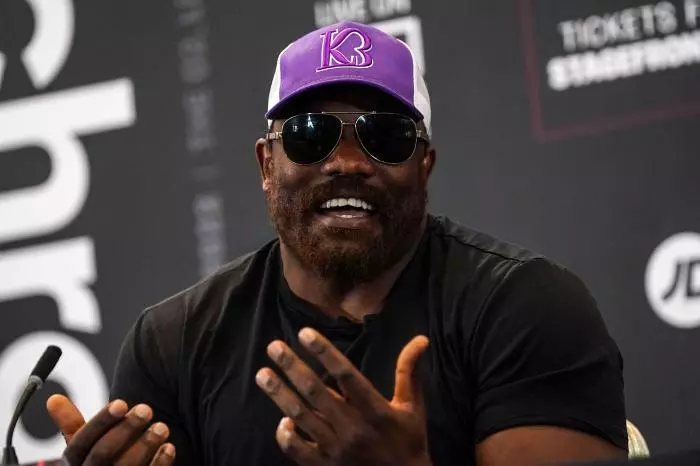Coronavirus: Fights behind closed doors? It just wouldn't be the same

Boxing Crowd
Boxing behind closed doors? No chance, says Craig Watson.
The coronavirus began as a slight concern. However, it is now wreaking havoc right across the sporting world, as governments take frantic measures to reduce its impact on communities and the economy.
It goes without saying that there are massive repercussions for the sport of boxing. But what changes are we likely to see, what is the potential impact on fighters, and which events are we could we miss out on?
Fights Behind Closed Doors?
In an interview with BBC Sport Wales on March 10, promoter Eddie Hearn ruled out the possibility of staging fights behind closed doors, describing how fighters thrive off "the noise and adrenaline" created by the crowd.
Think back to any great comeback win in history, the likes of Rocky Marciano vs Jersey Joe Walcott, or Muhammad Ali vs Joe Frazier.
Imagine the underdog having the sh** knocked out of them for 12-15 rounds, on the ropes, fearlessly ducking and weaving after a merciless beating. The crowd begin to chant their name and the arena is transformed into a Roman Colosseum. The underdog reacts and summons the energy for one last flurry, and after seemingly having nothing left in the tank, ends the fight with an inspired combination that puts the champion out for the count. With no crowd, I just don't think that happens. For me, it’s not an option.
Impact on Fighters
One huge issue caused by COVID-19 is of course money. Smaller events are gate dependent when it comes to paying a fighter, so no crowd means no pay-check. The way a fighter gets paid is very different to how other athletes get paid. Lower tier fighters in particular don't have the comfort of lucrative long-term contracts, with the added income of sponsorship deals and merchandising. The average boxer goes fight to fight, and if they're forced to go too long without being able to do so, they could find themselves in real trouble. Most fighters above the age of 25 and below British level will work full-time to coincide with their dream of one day becoming champion. They start their day with a lonely 5 am road run and then work for 10 hours before hitting the gym afterwards to maintain fitness levels for upcoming regional fights. Being a boxer is more than turning up on the night.
The scheduling of boxing fights is far less straightforward than in other sports too. You can't simply 'fit the fixtures in' at another date. Fighters’ might not be ready at any given time, the demand for certain fights will undoubtedly fluctuate, and staging a world title fight with a solid under card in a world class stadium on pay per view isn't something that you can organise overnight.
"We've got to think about fighters, they've got to go out and earn their money,” said Hearn. “When you miss a fight date, it isn't as simple as just fighting the next week. Sometimes you circle three or four months waiting for a new date.”
Cancellations and Postponements
Just a few weeks ago, Hearn remained upbeat about the state of boxing during the March to May period, claiming that all bouts were to go ahead as planned.
"Touch wood, it doesn't seem like that [calling off events] is imminent, but we hope it won't affect live events here... we want to keep filling arenas."
Fast forward 10 days and we have now seen mass cancellations across the boxing roster. At the time of writing, all major events up until May 2 have officially been cancelled or postponed.
Some of the fights unfortunate enough to be on that list include Daniel Dubois’ domestic dust-up with Olympian Joe Joyce. Frank Warren has confirmed the heavyweight clash will now take place on July 11. Elsewhere, the first all-British female world title bout between WBC champion Terri Harper and Olympian Natasha Jonas has been moved back to June in Doncaster, England.
The one I’m perhaps most annoyed about is Billy Joe Saunders, who was due to go to war with Saul ‘Canelo’ Alvarez, putting his WBC super-middleweight title on the line in a fight which could truly define the trajectory of his career and legacy.
Another fight which is potentially in jeopardy is Anthony Joshua’s mandatory defence against Kubrat Pulev, currently scheduled for June 20 at the Tottenham Hotspur stadium.
This one comes with a number of caveats too, because if the Premier League concludes the 2019/20 season then Spurs will need their stadium in June. Hearn has revealed the back-up date is July 25 although it could be delayed further if there’s no solution to the current coronavirus outbreak. It could see three PPVs in the space of seven weeks postponed with Oleksandr Usyk vs Derek Chisora and Dillian Whyte vs Alexander Povetkin the two other bouts on Sky Sports Box Office.
If all of the above gets cancelled then it’s inevitable Tyson Fury vs Deontay Wilder 3 will follow. Financially speaking, if there is going to be just one big heavyweight clash at the end of 2020, it's far more likely to be Joshua vs Fury, because that's who the fans want to see, and ultimately, it’s the money fight, which means Joshua vs Pulev and Fury vs Wilder could both be off.
The impact we’re seeing from the coronavirus has no precedence in history, and things are changing so quickly that what I have just written may well become irrelevant in a week. All we can really do as fight fans is stay engaged with the world of fighting, and wait for all this to blow over, at home, rather than at the Winchester.
By Craig Watson.



